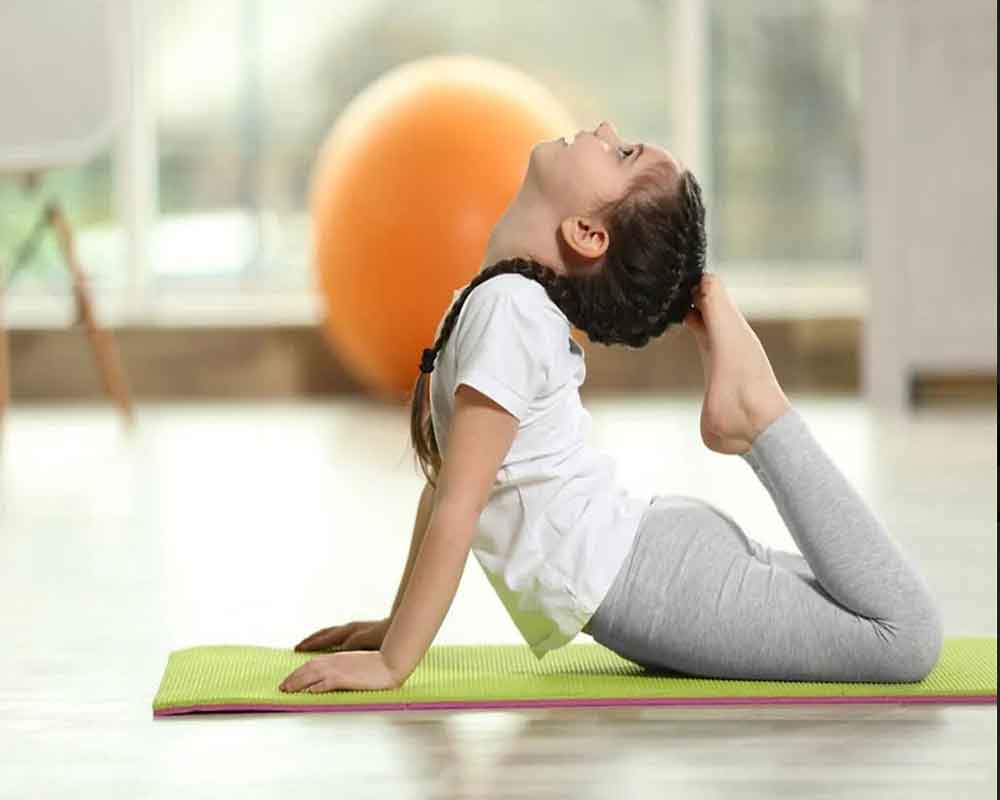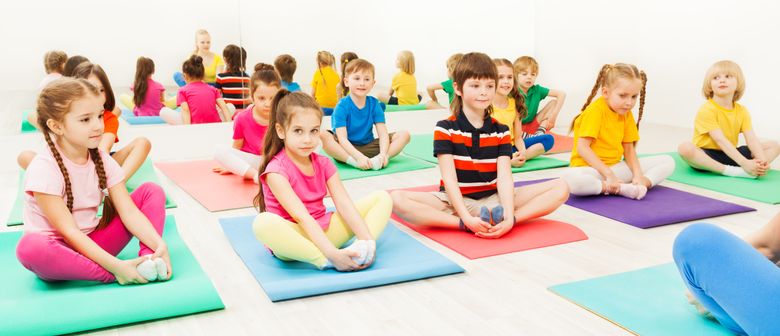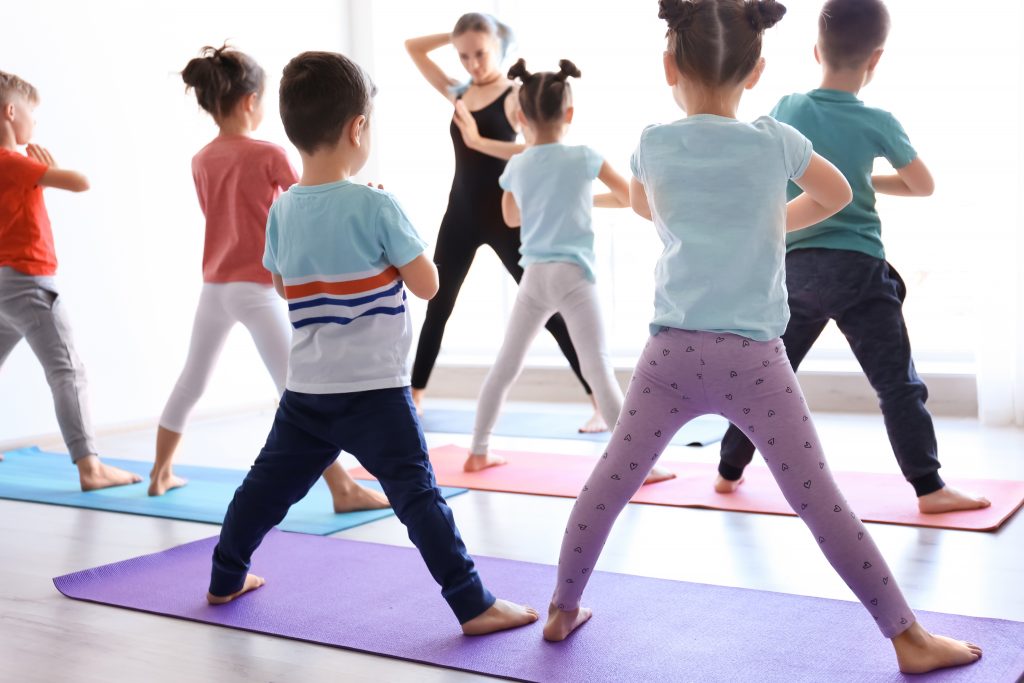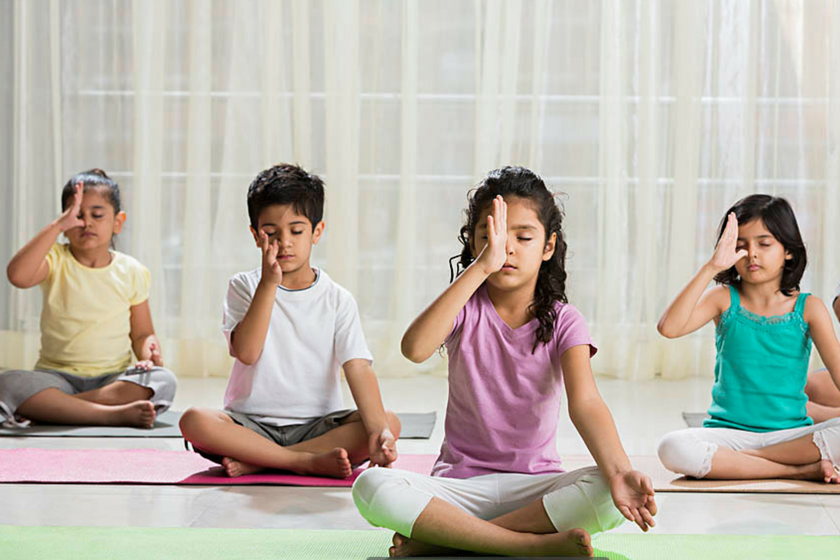Being a parent is like walking on a cloud. There are so many opportunities to help children grow. One such change involves the benefits of yoga for kids, which has benefits that can enhance the mental and physical health of kids in all age groups.
Whether you are a parent, teacher, or caregiver, adding some yoga into your child’s day could change everything.
Yoga is not only about stretching and bending; it is a versatile activity for toddlers, preschoolers, school-age children, and teens alike that offers unique benefits to each group.
From improving balance and focus to managing emotions and boosting self-esteem — these are all vital life skills nurtured through yoga that will serve them well as adults too.
Please come with us while we look at the benefits of yoga for kids as well as some practical tips on how you can easily incorporate this practice within your family’s daily schedule.
Benefits Of Yoga For Kids Of All Ages You Should Know
Yoga is something that I think many people should know about, especially when it comes to their kids.

Whether you’re a parent, teacher, or caregiver, understanding the benefits of yoga for kids and incorporating it into a child’s routine can be life-changing for them.
1. Yoga for the Little Ones (Ages 1-3)
Some simple poses like tree pose or downward dog can help our little ones with balance and coordination. Watching them wobble and then find their center is so cute!
When we guide toddlers through yoga poses it helps them become more aware of their bodies moving through space. They start to understand how different parts work together.
2. Yoga for Pre-Schoolers (Ages 3-5)
Introducing yoga at this age promotes a positive attitude towards physical activity in general. Our pre-schoolers will start to enjoy healthily moving their bodies around! Benefits of yoga for kids in a structured way is to release all of that boundless energy!! This can help us manage those hyperactive moments that we all have encountered before…
Relaxation techniques learned in yoga can reduce anxiety and promote emotional resilience in our children. It teaches them how to better deal with their feelings which is good for everyone involved.
3. Yoga for School-Age Children (Ages 6-12)
Regularly practicing yoga has been shown to enhance concentration and attention span which may lead to improved academic performance by promoting mindfulness-based learning strategies among other things.
One of the benefits of yoga for kids is that we might see them becoming more attentive and focused on their studies after they begin practicing regularly…who knows?!
Regular practice helps improve posture and reduce the risk of developing musculoskeletal issues later on down the line as well. We’ll notice them standing up straighter! Which is great because they are growing so much right now
4. Yoga for Teens (13-18 Years)
Yoga is a great way to deal with the stress and anxiety that come with school, friends, and activities. It gives them something good to help them face problems.
Sports can benefit from the increased strength, flexibility, and endurance that teenagers get through yoga. Their bodies will become more athletic and less prone to injury
Benefits of yoga for kids help teenagers become self-aware by encouraging self-reflection about their emotions and what they value in life; this is important for personal growth.
When we introduce our children to yoga, it should not be seen as just another fun thing but rather an all-round development support system for them. The most basic physical contribution we can make towards a child’s mental or emotional health is through this activity alone because it exercises their body too
5 Benefits Of Yoga For Mental Health In Children
Benefits of yoga for kids also offers many mental health benefits. They learn tools and techniques that promote cognitive growth, emotional well-being, and overall mental health.

Here are five key benefits of yoga for mental health in children:
1. Reduces Stress and Anxiety
Yoga is a great way for children to cope with stress or anxiety. When they do simple breathing exercises like deep belly breaths, it triggers the parasympathetic nervous system which relaxes them by reducing cortisol levels.
2. Improves Focus and Concentration
One of the most important benefits of yoga for mental health in children is that it improves focus and concentration. This is especially useful in a learning environment where students need to concentrate for long periods.
When kids hold poses or follow patterns of breath it teaches them mental discipline which leads to an increased attention span as well as better cognitive function overall.
Research shows that the benefits of yoga for kids also boost executive functions such as memory, problem-solving skills, and self-control all of which are important for success in school.
3. Enhances Emotional Regulation
Yoga helps children understand their feelings and how to deal with them constructively through different methods of relaxation that encourage mindfulness.
One thing it does particularly well is fostering self-awareness because when you’re aware of what’s going on inside yourself then you can start managing those emotions more effectively.
4. Boosts Self-Esteem and Confidence
By accepting oneself physically as one is while still striving towards improvement this practice creates positive body image awareness leading to higher levels of confidence among participants.
Especially young girls who often struggle with negative body image perception due to societal expectations placed upon females’ bodies today.
When kids see themselves doing things they never thought possible before physically their self-esteem takes off into space!
5. Encourages Positive Social Interactions
Through working together in groups during sessions there will be cooperation between peers; communication skills will be improved through talking about shared experiences gained from practicing yoga postures alongside friends.
Also during mindfulness practices carried out within this setting, empathy towards others grows making us kinder people who treat each other better.
In general, the benefits of yoga for kids can have profound effects on their mental health. These benefits work towards a holistic approach to well-being that will help them as they grow up and face life’s challenges
5 Helpful Tips for Practicing Yoga with Your Kids!
Doing yoga with kids can be fun and fulfilling, but you need to keep a few things in mind so that it’s safe, enjoyable, and effective.

So here are five tips for practicing yoga with your kids:
1. Make it Fun and Engaging
Since children love playing around, you can keep them interested by making yoga fun too. You can use animal poses, tell stories, or create a yoga adventure. For example, you can pretend to be a tree swaying in the wind or a cat stretching after sleep.
You can make the practice more interesting by adding music and props like scarves, yoga mats with colorful designs, or soft toys. Music can help set the mood while props may be used to make certain poses more exciting or accessible.
One of the important tips for practicing yoga with your kids is to keep the yoga sessions short and sweet; 10-15 minutes is often enough for younger children. However, as they get older and more comfortable with the practice, you could gradually increase the time.
2. Create a Safe & Comfortable Environment
Select a quiet, safe, and spacious area where children can move about freely without hazards. Ensure that there’s good lighting in addition to maintaining warm temperatures.
Use yoga mats to provide cushioning as well as prevent slips; this ensures that kids have comfortable surfaces for practicing on while reducing the chances of getting hurt.
Always be aware of each child’s level of comfort; let them listen to their bodies and never force any pose upon them. If any kid feels uneasy in any way during class – either physically or emotionally – allow him/her to take breaks from such positions until ready again physically/mentally/emotionally.
3. Promote Mindfulness & Breathing
Teach simple breathing techniques like belly breaths or pretending to blow up balloons so that they gain control over their breath which ultimately leads to relaxation.

Incorporate mindfulness activities such as focusing on how their body feels in a particular pose or paying attention to sounds around them (i.e., birds chirping). This helps keep children present-mindedness while boosting awareness levels concurrently.
Finish off with guided relaxation at the end of every session short meditation at the beginning OR both! This could involve telling stories where they imagine themselves being calm & happy place which would help them relax and center themselves.
4. Be patient and flexible.
All children are unique with their own abilities and interests. Patience is needed when dealing with them hence the practice should be adjusted to suit every child’s needs; for instance, some may like sitting still while others prefer moving around in different positions.
Do not stick too much to your plan or what you expected. A child may want more action than anticipated or they might become fascinated by a particular pose. So go along with it. Playing along is one of the crucial tips for practicing yoga with your kids.
Whatever they do, praise them for trying even if it is not good enough or too little effort was put into it since this makes one confident about themselves and feel good about practicing
This could mean celebrating concentration skills shown during practice sessions, imaginative postures created or simply attempting something new altogether Positive reinforcement goes a long way indeed!
5. Integrate yoga into everyday life
One should try making yoga part of their routine either daily or at least once per week this will help them make it a habit that becomes hard to break as well as develop anticipation towards these exercises among kids.
Let the whole family participate in yoga classes together because apart from acting as role models for young ones such gatherings also foster stronger relationships between parents and their children besides being fun-filled events that everyone can enjoy equally well.
Advice kids on utilizing techniques learned during lessons beyond school premises such as taking deep breaths whenever they feel nervous about anything or practicing calming postures before going to bed so that they can have better sleep
A Word From Mind Family
Incorporating yoga into your child’s routine can truly be a transformative experience, fostering their physical health, emotional well-being, and overall happiness.
Whether you’re guiding them through playful poses or encouraging mindfulness and relaxation, the benefits of yoga for kids offer a space where children can grow, learn, and discover more about themselves.
By creating a safe and engaging environment, celebrating their progress, and making yoga a part of your family’s daily life, you’re not just helping them build strength and flexibility; you’re nurturing their inner peace and resilience.
Frequently Asked Questions (FAQs)
What are the benefits of yoga for kids of all ages?
Yoga improves balance, coordination, focus, and emotional regulation. It enhances physical health and supports mental well-being in a fun and engaging way.
What are the benefits of yoga for mental health in children?
Benefits of yoga for mental health in children reduces stress, improves focus, enhances emotional regulation, boosts self-esteem, and fosters positive social interactions through mindfulness and relaxation techniques.
What are the tips for practicing yoga with your kids?
Keep it fun with playful poses and stories. Create a safe environment, encourage mindfulness and breathing, be patient, adaptable, and integrate yoga into daily routines for consistency and enjoyment.















Leave a Reply